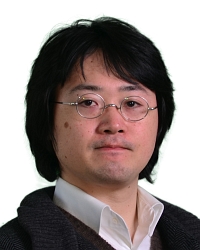TR2025-156
QKAN-GS: Quantum-Empowered 3D Gaussian Splatting
-
- , "QKAN-GS: Quantum-Empowered 3D Gaussian Splatting", ACM Multimedia Workshop, October 2025.BibTeX TR2025-156 PDF
- @inproceedings{Fujihashi2025oct,
- author = {Fujihashi, Takuya and Kuwabara, Akihiro and Koike-Akino, Toshiaki},
- title = {{QKAN-GS: Quantum-Empowered 3D Gaussian Splatting}},
- booktitle = {ACM Multimedia Workshop},
- year = 2025,
- month = oct,
- url = {https://www.merl.com/publications/TR2025-156}
- }
- , "QKAN-GS: Quantum-Empowered 3D Gaussian Splatting", ACM Multimedia Workshop, October 2025.
-
MERL Contact:
-
Research Areas:
Abstract:
The recent 3D Gaussian Splatting (3DGS) method has been expected for high-quality 3D scene rendering. However, due to its explicit representation, which requires geometry and attributes for mil- lions of individual 3D Gaussians, 3DGS requires a significant data size for storage and transmission. For data reduction, some studies have proposed signal-processing-based and generative-based 3DGS compression methods. The generative-based methods utilize multi-layer perceptrons (MLPs) with fixed activation functions for individual attributes to reduce the locally redundant Gaussians. In this paper, we propose a novel approach, QKAN-GS, to represent the individual Gaussian attributes with a small model size. For this purpose, we design a Quantum-inspired Kolmogorov-Arnold Network (QKAN), which is quantum-empowered learnable activation functions on model edges, to maintain the model’s expressive power with fewer parameters. Experiments show that the proposed QKAN-GS achieves better 3D reconstruction quality than the generative 3DGS compression method, regardless of whether it uses fixed or learnable activation functions, under the same data size.
